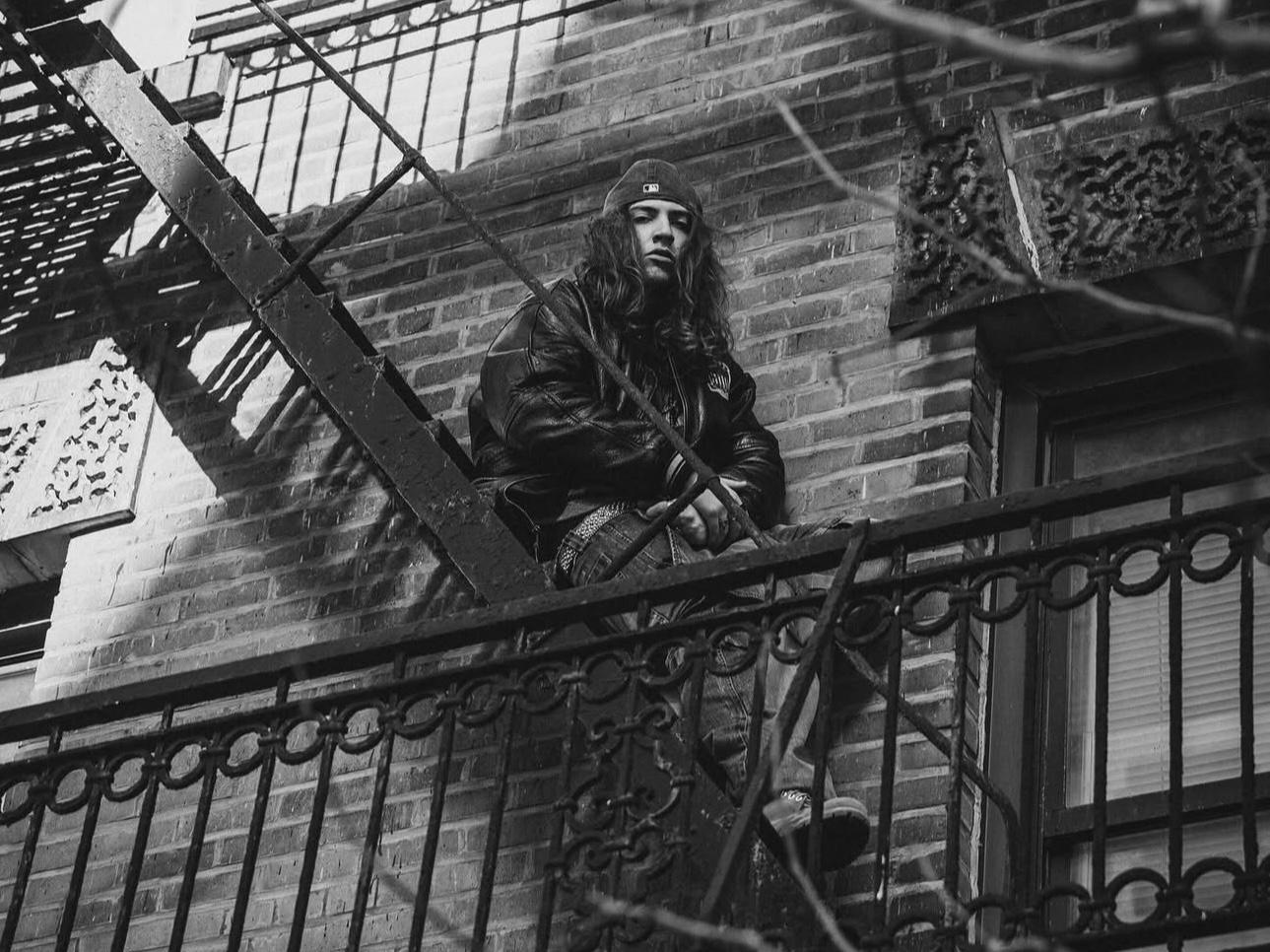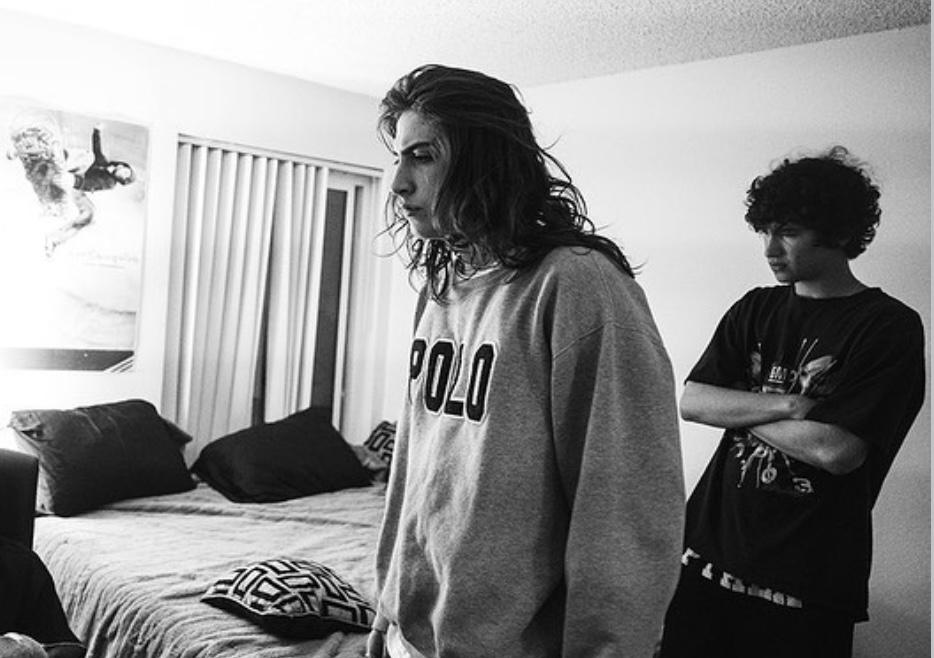
Lord Sko is Redefining NYC Hip-Hop with The 'Piff' Era
With his upcoming album PIFF, Lord Sko fuses the golden era of NYC hip-hop with a bold new edge, starting a new wave in modern rap.
By Rilee LucasMarch 21 2025, Published 10:30 a.m. ET
It was my first day in New York City, and my head was still spinning from the excitement of a new chapter in my life. After a long day of moving, I walked into an Italian restaurant, tired and hungry, unaware that I was about to become part of something bigger. The waiter wasn’t just taking my order; he was full of energy, ready to dive deep into conversation. We talked about music, my dream of becoming a journalist, and the stories I wanted to tell. Then, he naturally spoke about his son, an up-and-coming rapper who was just getting started on his career. The kid had a small following but dreams of making it big. His father didn’t ask for much, just a listen, a follow, maybe a little support.
That was three years ago. Fast forward to today, and here I am chatting with that son who goes by the moniker Lord Sko. He’s a rising force in the music industry, signed to Roc Nation, and is about to release his much-anticipated album PIFF. It's funny how life works when a humble introduction in an Italian restaurant leads to this moment. This is Lord Sko. This is PIFF.
Lord Sko, a 20-year-old rapper born and raised in Washington Heights, New York, is a genre-bending lyricist who connects the golden era of NYC hip-hop with a new-wave edge. His sound acts as a time machine, effortlessly combining classic boom-bap with modern textures.
Growing up in the 2000’s, the rising talent was equipped with a soul from a different era. Sko was raised on classic New York MCs, but he later discovered the sounds of contemporary lyricists such as Joey Bada$$, Action Bronson, and the late Mac Miller. His parents, who are dreamers themselves, raised him in a neighborhood full of culture and vibrancy, which had a major impact on the young rapper and the music he creates.
“I wasn't alive in 1994. I can look at old pics, absorb a billion Wu-Tang tracks, and sit and listen to every Nas record ever made, but I'm not from that cloth,” Sko tells Bleu. “Internally, I am, but I was born in 2004. New York was different then than it is now. I'm the guy that’s gonna mend it together.”
He adds, “If you're from New York, you know someone who's been to Washington Heights. Maybe just to get some weed, a snack, or see a girl, but the influence in uptown is powerful.”
New York City has long been the birthplace of hip-hop legends, with Harlem, the Bronx, Brooklyn, Queens, and Staten Island producing some of the genre’s most iconic names. Yet Washington Heights remains an underdog in the rap scene. Sko wears his neighborhood like a badge of honor, determined to change that narrative. For him, it’s more than just making music—it’s a mission to put the Heights on the map and cement its place in hip-hop history.

Skos' embodiment of New York City culture runs deep, shaping not only his connection to hip-hop but also his sound, often leaving people surprised when they learn he’s white. Being a white rapper comes with its own awkwardness, but for him, the funniest backhanded compliment he gets is people not knowing he’s a white male. To him, that tension of race in hip-hop disappears when someone listens to his music with no preconceptions and is genuinely surprised by his background.
“If someone is judging purely off the sound and says, ‘Holy shit, I didn’t know you were white,’ that’s the ultimate compliment. That means I rap well enough that I don’t come off as corny or like I’m trying too hard,” says Sko.
He further acknowledges his place in the culture, saying, “Obviously, I’m still a guest. I still gotta play my role and be who I am.”
Not everyone is open-minded—he deals with plenty of online hate, often boiled down to nothing more than, “He’s white, f** him,” but Sko doesn’t waste time trying to change anyone’s mind. The rapper said, “If that’s your stance, power to you. There are plenty of non-white rappers out there—I hope you enjoy them.”
At the end of the day, it’s about the music. And for Sko, that’s the most powerful message he can send—whether he’s repping Washington Heights or letting his sound speak for itself, he’s here to stay.
Sko is chasing his vision with his upcoming album, PIFF. The rapper claims he's always wanted to create the perfect kick-back weed-smoking album, and the classic New York City term was the perfect way to encapsulate the vibes he wanted to produce. The long-imagined concept officially became a reality after a tweet from Wiz Khalifa sparked the initial push.
The Tweet read, “They really don’t be making music to get stoned to anymore that’s crazy.” At that moment, Sko realized something had to be done.
“It came naturally for me; I’m just rapping about my day-to-day life,” says Sko. “I chill, smoke a lot of weed, and love hip-hop.” This central theme has also appeared frequently in his last two projects, but this time, he's threading in psychedelic influences and experimenting with bold new production. With this album, he wasn’t looking to abandon the classic "old head" NYC vibe, but to transcend it, proving he’s more than just a traditionalist.
Another key piece from his past projects following him into the PIFF era is Sko’s longtime collaborator and close friend, producer Arlo Walker. After working together on Sko’s last project, United Palace, the duo took a break and experienced a period of complete silence and separation.
Despite initially wanting to branch out and work with different producers, Sko naturally gravitated back to the person who had been there from the start. Even without full communication at the beginning of the process, Walker still contributed the most to the project, with three beats to his name.
“Keep your people close,” says Sko. “The ones who helped you get to where you are, the ones you love working with– those are the people who are gonna be there ‘till the end.”

What separates Lord Sko from other artists of his generation is his value for storytelling. This project isn’t constrained to a compilation of wavy songs thrown together in an album. There's an art behind the sequencing on PIFF.
"I like messing with people. I enjoy giving the listeners what they want, taking it away, and bringing it right back,” says Sko.
The album opens its auditory journey with an upbeat, bright, and hopeful energy before seamlessly shifting into a darker, more mellow tone, all while keeping listeners on their toes with a few unexpected twists. One standout moment on the album is the seamless yet stylistically bold transition between "Girbaud Talk" and "Robinhood." Fans are sure to appreciate the shift in energy, which flows effortlessly while maintaining a unique edge.
Beyond the musical evolution, Sko also feels that he’s leveled up his one-liner game on this project. He confidently declares, "I'm your favorite rapper's favorite ghostwriter," silencing any lingering doubts about his lyrical authenticity. Sko takes pride in the fact that he writes every single one of his lyrics, which is a testament to his unwavering commitment to being a true wordsmith.
Sko tells Bleu, “Sometimes I can tell when people haven't really listened to my music. They’re just like, ‘he's raw New York.’ They don't say anything of actual substance about my music. I love the shock value of when they hear what my pen has to offer.”
The project concludes with "Randy Moss," a track that Sko describes as "feeling final in its purest form." From the moment he heard the beat produced by A$AP Twelvyy, he knew it was the perfect outro and made sure it was set aside for himself. And he’s confident people are going to “enjoy the closure.”
Apart from the weight his own words carry, the lyricist has many remarkable features on PIFF. From MAVI, Curren$y, Polo Perk$, Conway The Machine, and Del Tha Funkee Homosapien, Sko is barring up with some of the game’s most respected lyricists. However, one feature is one of NYC’s finest, Grand Puba of Brand Nubian, and Sko finds himself bridging the gap between generations.
“We were in the studio over the summer getting ready to wrap the project,” says Sko while explaining how Puba got on the album. “After we played back ‘Girbaud Talk,’ my manager half-jokingly said, ‘woah what if we got Puba on this joint’– A few days later, he sent the verse and the hook. It was dope to see it come together.” Sko further jokes, “The old heads might not like all the 808’s on the album, but I just gave them a song from Grand Puba so they can deal with it.”
Along with the album drop, Sko is taking his talent nationwide alongside fellow Heights rapper LIFEOFTHOM. The PIFF Tour launches in Boston on April 16th, with Sko embarking on a coast-to-coast journey through major cities such as Philadelphia, Chicago, Los Angeles, and more.
Lord Sko defined his last project as a cult classic, but this one is ready to lead the forefront. Be sure to check out PIFF, the highly anticipated album, dropping on March 28th.

